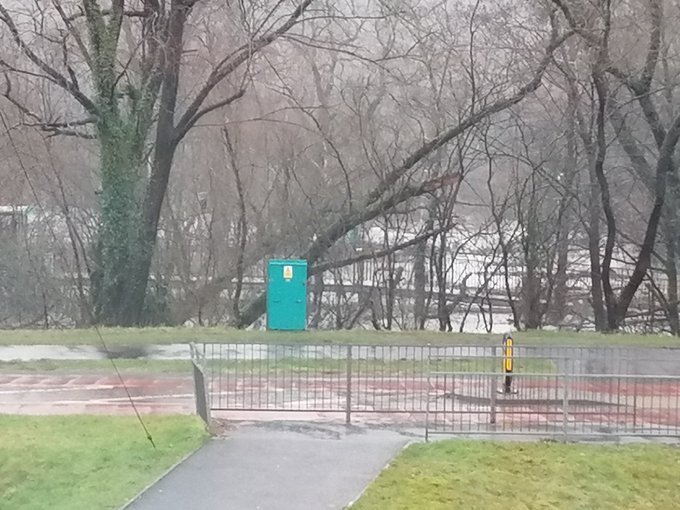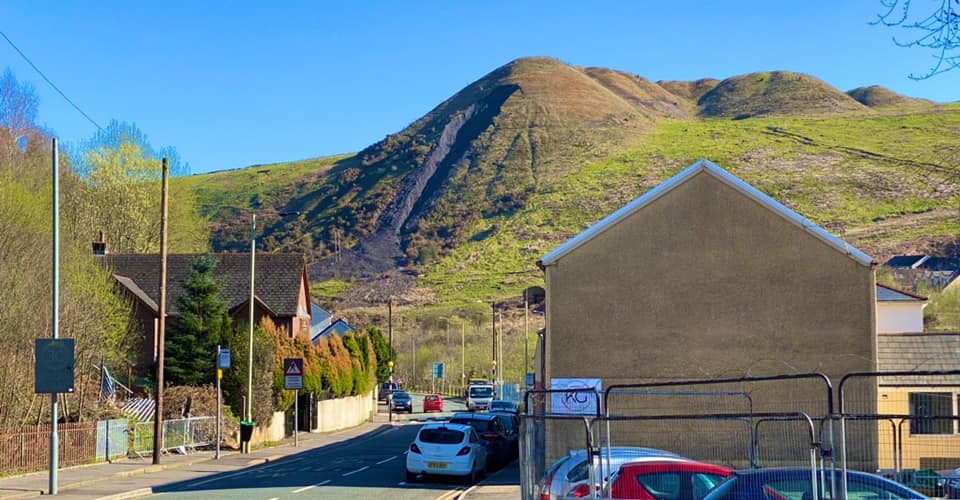Report reveals flood defence investment needed to keep pace with climate change

Keeping pace with climate change and reducing future flood risk to communities across Wales will require increased and sustained investment in flood defences – yet not all locations at risk will be economical to defend.
This is the finding of a new report published by Natural Resources Wales (NRW) today (11 January), looking at the level of investment required in flood defences to manage Wales’ future flood risk from rivers and the sea against the backdrop of a changing climate.
NRW’s Long Term Investment Requirements for Flood Defences in Wales report is published in response to an action in the Welsh Government’s National Flood and Coastal Erosion Risk Management Strategy.
It considers four different investment scenarios for flood defences on a national (Wales) scale, factoring in climate change impacts over a 100-year period. The scenarios include keeping pace with climate change for all existing defences, investing only in defences that are cost-beneficial, investing only in locations at the highest risk, and the impacts of investing at current funding levels.
The report highlights that, over the next 100 years, and considering the projected impacts of climate change, 24% more properties will be at risk from river flooding and 47% more from tidal flooding. 34% more properties will also be at risk of surface water flooding. These figures are before any new properties are built.
Keeping pace with future climate change projections across Wales over the next century for all existing flood defences will require 3.4 times the current funding levels. Whilst this scenario unsurprisingly brings the greatest benefits in reducing the flood risk to the greatest number of properties, it will cost the most to deliver.
Investing in economic defences only, where the economic benefit of delivering improvement works outweigh the costs, would require a 40% increase in funding levels, but would benefit fewer properties.
While any work will come at a cost, the report says that the economic benefit of investment in flood risk management schemes at a Wales-wide level far outweighs the costs of delivering the work in each of the four scenarios, with every £1 spent returning between £2.80 and £13.10 of benefit, depending on the scenario.
However, at a local level, certain locations may not be cost-effective to defend, and difficult decisions will need to be made on how flood risk is managed in these areas. High-risk locations in Wales will always be beneficial to invest in as the bulk of the properties at risk are located in these areas. However, over 22,000 properties are currently behind flood defences that are uneconomical to invest in over the next 100 years.
While flood defences play a crucial role in managing this risk, Wales will need a combination of interventions in order to help communities become more resilient. And given the time it takes to plan and secure funding for large scale construction schemes and adaptation strategies, and with the effects of climate change already evident, NRW is urging all stakeholders to plan now and consider the multi-faceted approach that will be needed to effectively manage flood risk in Wales in the future.
Clare Pillman, Chief Executive of NRW said:
“There is no denying that the biggest challenge of our era is the climate emergency. We have certainly been dealing with the very real impacts of that recently, with multiple named storms hitting Welsh shores over recent weeks and months.
“How we manage greater flood risk in the future will become even more challenging as climate change accelerates. This report aims to help understand the investment required in flood defences to reduce that risk to people over the next century. It will trigger difficult conversations about where investment is focussed and approaches that may need to be taken in areas with limited properties and fewer economic benefits.
“But it is crucial that we have those conversations now. We will never be able to stop all flooding, and the risks are increasing. Which is why governments of all levels, businesses and communities must work together now – to plan effectively, and act to manage the increasing risks of flooding that we are seeing now and that will continue in the future.”
The report underlines that, while maintaining and investing in flood defences to keep pace with climate change has a large part to play in reducing the risk to communities in Wales, they cannot be the sole focus. It shows that, regardless of the scenario implemented across the 100-year appraisal period, residual damages remain, underlining that Wales will need to be ambitious and look at a range of ways to work holistically to manage the increasing risk.
Jeremy Parr, Head of Flood and Incident Risk Management at NRW said:
“While we will continue to invest and maintain our flood defences, they cannot provide 100 percent protection. Defences can be overtopped, or they can fail. They also need to keep pace with climate change if they are to continue to provide the same standard of protection. This means they will need to be higher and stronger, and maintained to be fit for purpose.
“But this isn’t feasible or cost-effective in all locations. We need to understand what is possible – and desirable – over the long term. We know that we will need to do things differently if we are to address the bigger challenges ahead. This includes using natural flood management methods wherever we can, avoiding development in high risk flood areas, taking whole catchment approaches, improving further our flood forecasting and encouraging people to sign up for free flood warnings.
“We have to take the risks seriously. Climate change is happening now, and we are seeing the evidence all around us. We need to move the adaptation debate forward in Wales and bring everyone with a stake in the outcome together to design and deliver the holistic approach needed for future flood risk management, and to get ready for the unavoidable impacts of climate change.”


